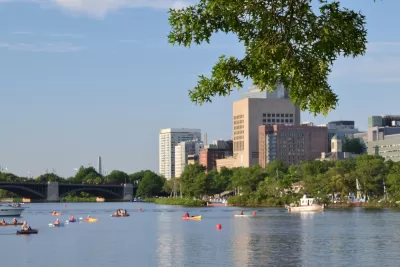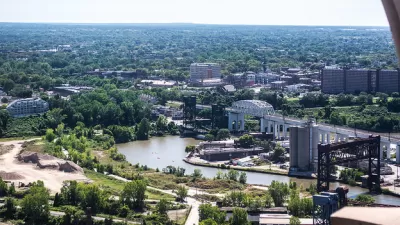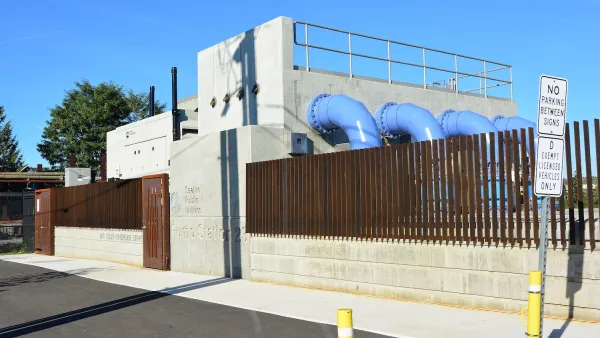On the 50th anniversary of the Cuyahoga River catching fire in Cleveland, it's a good time for urban river keepers everywhere to reevaluate their work and redouble their efforts to make safe and healthy rivers for everyone.

Renée Loth, columnist for the Boston Globe, looks to Cleveland and the Cuyahoga River on the 50th anniversary of that river's most infamous episode (i.e., catching on fire) to not only celebrate the work done to restore that river, but also to look to other rivers around the country for more examples of environmental success.
The Cuyahoga is not the only River Lazarus to come back from the dead. Other US waterways — the Potomac, the Missouri, our own River Charles — have recovered from industrial pollution enough to be fishable and swimmable most of the time. A message runs through it: If mankind stops heaping abuse on the planet, in time it will heal.
The article details the cleanup efforts on the Charles River, which have focused on removing sewer overflows and stormwater runoff that pours hazards off the streets and into the river.
A lot of progress has already been made, especially with regard to sewer overflows. "The EPA’s first water quality report card, in 1995, gave the Charles a D. Thanks to new federal and state mandates, legal pressure from environmental groups, and benefits from the Boston Harbor cleanup, combined sewer overflows have been reduced by well over 90 percent," according to Loth.
Lest Bostonians think their work is done, Loth notes that numerous runoff locations still need to be fixed, and the river has dropped a grade on the water quality report in recent years.
FULL STORY: How to resurrect a river

Maui's Vacation Rental Debate Turns Ugly
Verbal attacks, misinformation campaigns and fistfights plague a high-stakes debate to convert thousands of vacation rentals into long-term housing.

Planetizen Federal Action Tracker
A weekly monitor of how Trump’s orders and actions are impacting planners and planning in America.

In Urban Planning, AI Prompting Could be the New Design Thinking
Creativity has long been key to great urban design. What if we see AI as our new creative partner?

How Trump's HUD Budget Proposal Would Harm Homelessness Response
Experts say the change to the HUD budget would make it more difficult to identify people who are homeless and connect them with services, and to prevent homelessness.

The Vast Potential of the Right-of-Way
One writer argues that the space between two building faces is the most important element of the built environment.

Florida Seniors Face Rising Homelessness Risk
High housing costs are pushing more seniors, many of them on a fixed income, into homelessness.
Urban Design for Planners 1: Software Tools
This six-course series explores essential urban design concepts using open source software and equips planners with the tools they need to participate fully in the urban design process.
Planning for Universal Design
Learn the tools for implementing Universal Design in planning regulations.
Gallatin County Department of Planning & Community Development
Heyer Gruel & Associates PA
JM Goldson LLC
City of Camden Redevelopment Agency
City of Astoria
Transportation Research & Education Center (TREC) at Portland State University
Jefferson Parish Government
Camden Redevelopment Agency
City of Claremont




























